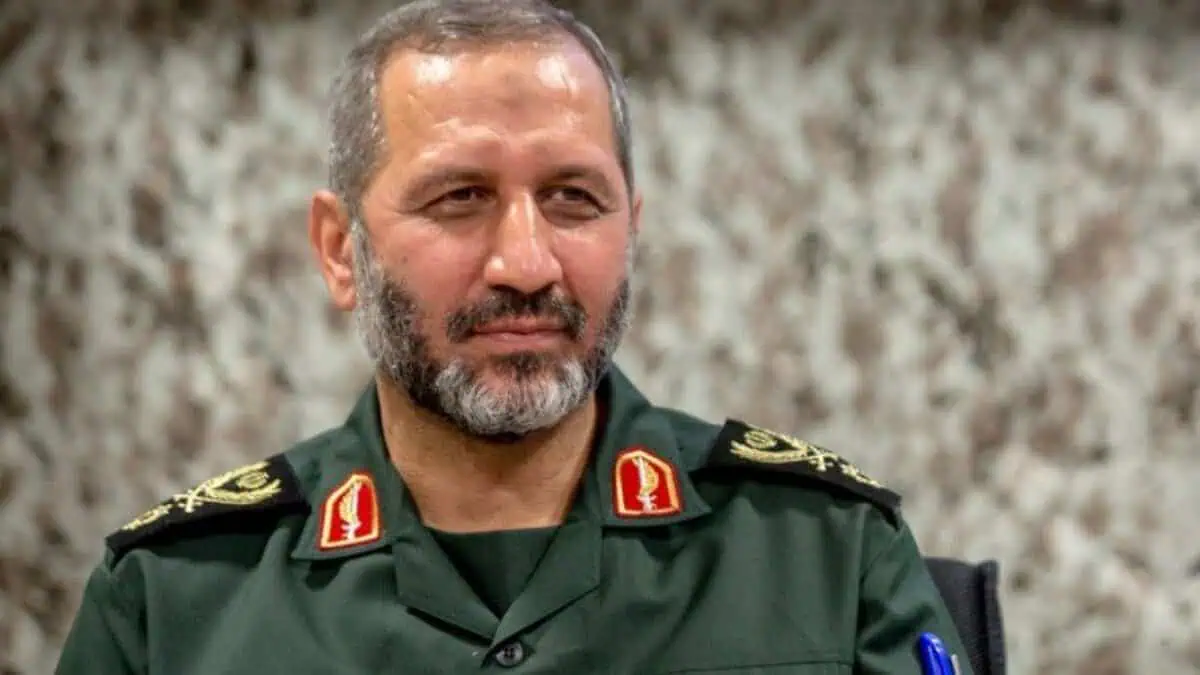
Tehran: Iran’s Supreme Leader Ali Khamenei has appointed the new chief commanders of the army and the Aerospace Division of the Islamic Revolution Guards Corps (IRGC).
The leader on Saturday appointed Seyed Majid Mousavi as the Chief Commander of the IRGC’s Aerospace Division, Xinhua news agency reported quoting the semi-official Mehr News Agency.
Mousavi, who used to serve as the force’s deputy commander, was promoted to the position after the division’s former chief commander, Amir-Ali Hajizadeh, was killed in Israeli airstrikes on the Iranian capital Tehran on Friday.
Earlier, the Iranian leader appointed Amir Hatami, former Iranian Defence Minister, as the army’s Chief Commander, the official news agency IRNA reported.
Hatami replaced Abdolrahim Mousavi, who was appointed on Friday Chief of Staff of the Iranian armed forces after the death of Mohammad Bagheri, who used to serve at the post, in the Israeli airstrikes earlier in the day.
Israel early Friday launched airstrike on the Iranian capital Tehran and other cities across the country.
In addition to Bagheri and Hajizadeh, IRGC’s Chief Commander Hossein Salami and Gholam-Ali Rashid, commander of Iran’s Khatam al-Anbiya Central Headquarters, were also killed in the Israeli airstrikes.
Earlier in the day, the Israeli Defence Forces (IDF) announced elimination of nine Iranian nuclear scientists during the opening phase of its military operation against Iran’s nuclear programme, which began early on Friday.
Revealing details of the ongoing operation, the IDF described it as a critical blow to Iran’s nuclear ambitions.
According to the IDF, the nine scientists were instrumental in advancing Iran’s efforts to acquire a nuclear weapon.
“All the scientists and experts who were eliminated were significant sources of knowledge in the Iranian nuclear project and had decades of cumulative experience in the development of nuclear weapons,” the military stated.
Those killed in the strikes were identified as Fereydoon Abbasi, a nuclear engineering expert; Mohammad Mehdi Tehranchi, a physicist; Akbar Motalebi Zadeh, a chemical engineering expert; Saeed Barji, an expert in materials engineering; Amir Hassan Fakhahi, a physicist; Abd al-Hamid Minoushehr, an expert in reactor physics; Mansour Asgari, a physicist; Ahmad Reza Zolfaghari Daryani, a nuclear engineer; and Ali Bakhouei Katirimi, a mechanical expert.
The IDF added that many of them were considered successors to Mohsen Fakhrizadeh, the late nuclear scientist widely regarded as the “father of the Iranian nuclear project,” who was assassinated in 2020.
The Israeli military said that the scientists were killed in coordinated and simultaneous airstrikes on Tehran on Friday morning, in the same wave of attacks that also eliminated dozens of senior military commanders, including six top officials.
According to the IDF, these strikes were the result of years-long clandestine intelligence gathering focused on Iran’s top nuclear minds.
“The elimination of the scientists was made possible following in-depth intelligence research that intensified over the past year as part of a classified and compartmentalised IDF plan,” the IDF said.
It noted that dozens of intelligence researchers had worked on a secretive operation for years, tracking key figures in Iran’s nuclear apparatus.



